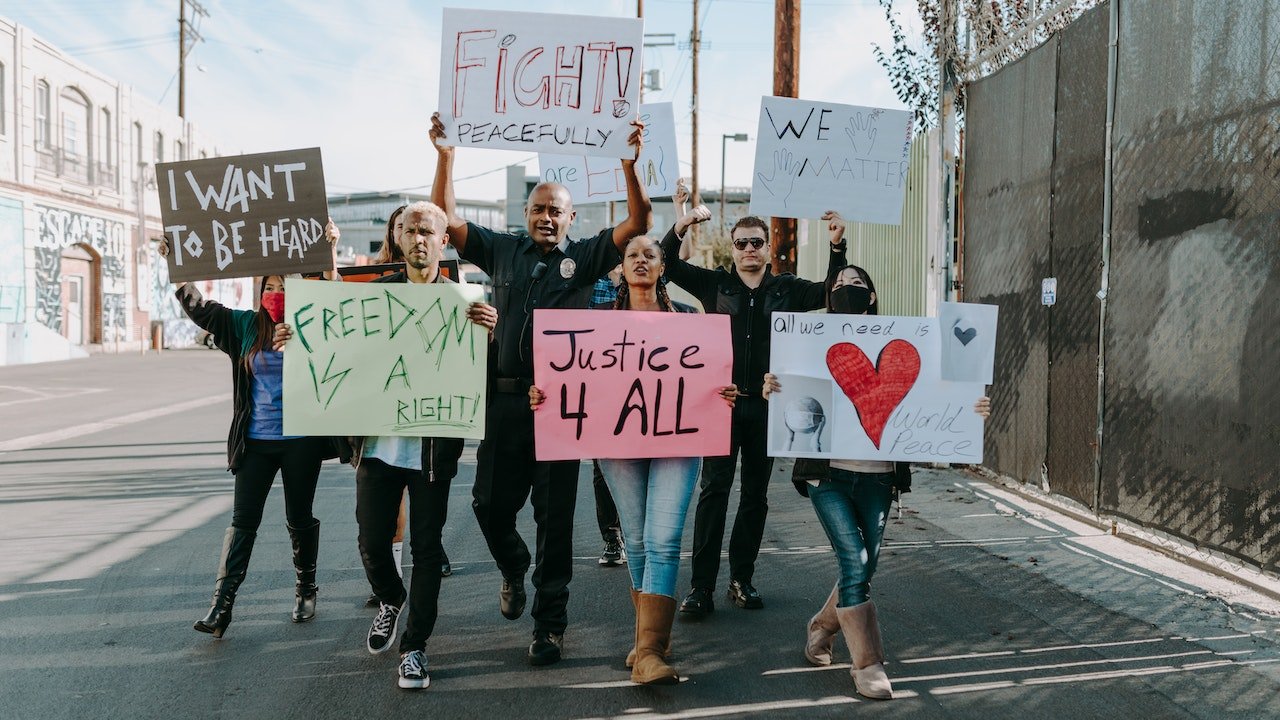Understanding Your Civil Rights in 2024: A Comprehensive Guide
Understanding your civil rights in 2024 ensures protection from discrimination. Learn key protections, recent changes, and current challenges.

In 2024, knowing your civil rights will be more important than ever. Knowing your civil rights guarantees that you can defend others and yourself against injustice and discrimination as society changes and new issues emerge. The goal of this guide is to give a thorough review of the situation of rights today, emphasising important safeguards, recent developments, and enduring problems that everyone should be aware of.
A good and fair society must be built on civil rights, which ensure everyone’s freedom and equality. By 2024, these rights will cover new topics like digital privacy and the rights of underrepresented groups in addition to more established ones like freedom of speech and employment discrimination. You may actively assist in defending these fundamental liberties and fostering a more inclusive and equitable world by becoming aware of your civil rights.
Understanding Your Civil Rights in 2024
Early Civil Rights Movements
The fight for civil rights has deep roots, stretching back to the abolition of slavery and the struggle for women’s suffrage. These early movements laid the groundwork for future progress.
Civil Rights Act of 1964
A pivotal moment in U.S. history, the Civil Rights Act of 1964 outlawed discrimination based on race, color, religion, sex, or national origin. This legislation was a major victory for civil rights activists and set the stage for further advancements.
Progress Over the Decades
Since the 1960s, there have been significant strides in rights, including laws protecting the rights of LGBTQ+ individuals, people with disabilities, and other marginalized groups. However, the journey is ongoing, and new challenges continue to arise.
Civil Rights in 2024
Current State of Rights
In 2024, rights are more relevant than ever. With advancements in technology and changes in societal norms, new issues such as digital privacy and gender identity are at the forefront of the civilconversation.
Major Changes and Updates
Recent years have seen numerous updates to civil rights legislation, including expanded protections for LGBTQ+ individuals and increased efforts to combat systemic racism. Staying up-to-date with these changes is essential for understanding your rights.
Key Civil Rights Protections
Right to Equality
Everyone is entitled to equal treatment under the law. This fundamental right protects against discrimination in various aspects of life, including employment, education, and housing.
Freedom of Speech
The right to express your opinions without fear of government retaliation is a cornerstone of democracy. However, this right has its limits, especially when it comes to hate speech and incitement to violence.
Right to Privacy
In an age of digital surveillance, the right to privacy is increasingly important. Laws are continually evolving to protect personal information from unauthorized access and misuse.
Right to a Fair Trial
The legal system guarantees the right to a fair and public trial, ensuring that justice is served without prejudice. This includes the right to legal representation and an impartial jury.
Civil Rights in the Workplace
Anti-Discrimination Laws
Employment laws prohibit discrimination based on race, gender, age, religion, and other characteristics. Understanding these laws helps you navigate workplace challenges and advocate for your rights.
Harassment Policies
Workplace harassment, including sexual harassment, is illegal. Companies are required to have policies in place to prevent and address harassment, providing a safer environment for all employees.
Equal Pay Act
The Equal Pay Act mandates that men and women receive equal pay for equal work. Despite progress, wage disparities persist, and awareness is key to bridging the gap.
Civil Rights in Education
Title IX
Title IX prohibits sex-based discrimination in educational institutions receiving federal funding. This includes protection against sexual harassment and ensures equal opportunities in athletics and academics.
Rights of Students with Disabilities
Laws like the Individuals with Disabilities Education Act (IDEA) ensure that students with disabilities receive appropriate accommodations and support to succeed in school.
Anti-Bullying Measures
Schools are required to implement anti-bullying policies to protect students from harassment and create a safe learning environment.
Civil Rights in Healthcare
Patient Rights
Patients have the right to receive informed consent, access their medical records, and receive non-discriminatory care. These rights are crucial for maintaining trust and transparency in healthcare.
Anti-Discrimination in Healthcare
Discrimination in healthcare settings, whether based on race, gender, or other factors, is illegal. Laws are in place to ensure that everyone receives fair and equal treatment.
Access to Medical Records
Patients have the right to access their medical records, ensuring transparency and enabling them to make informed decisions about their healthcare.
Civil Rights and Technology
Digital Privacy
With the rise of the internet, digital privacy has become a major concern. Laws such as the General Data Protection Regulation (GDPR) aim to protect personal data and ensure that it is handled responsibly.
Cybersecurity Laws
As cyber threats increase, so do the laws designed to combat them. Understanding these laws helps protect your digital presence and personal information.
Social Media Regulations
Social media platforms are subject to regulations to prevent the spread of misinformation and protect users’ rights. These regulations are continually evolving to address new challenges.
Civil Rights for Marginalized Groups
Rights of Racial and Ethnic Minorities
Ongoing efforts are in place to combat racial and ethnic discrimination, including policies promoting diversity and inclusion in various sectors.
LGBTQ+ Rights
Laws protecting LGBTQ+ individuals from discrimination have expanded significantly. Understanding these rights is crucial for advocating for equality and inclusion.
Rights of People with Disabilities
The Americans with Disabilities Act (ADA) ensures that people with disabilities have equal access to public spaces, employment, and services. Awareness of these rights helps promote accessibility and inclusion.
How to Protect Your Civil Rights
Knowing Your Rights
The first step in protecting your civil rights is to understand what they are. Education and awareness are key to recognizing and addressing violations.
Legal Assistance and Resources
Numerous organizations and legal resources are available to help you navigate civil rights issues. Seeking professional advice can be crucial in protecting your rights.
Challenges to Civil Rights
Ongoing Discrimination
Despite progress, discrimination persists in many forms. Continued advocacy and education are necessary to combat these challenges.
Legal Loopholes
Certain legal loopholes can undermine civil rights protections. Staying informed about these issues helps advocate for necessary reforms.
Societal Resistance
Societal attitudes can be slow to change, creating resistance to civil rights advancements. Promoting awareness and understanding is key to overcoming this resistance.
Case Studies
Landmark Civil Rights Cases
Understanding landmark cases like Brown v. Board of Education and Obergefell v. Hodges provides insight into the legal battles that have shaped civil rights.
Recent Court Decisions
Staying informed about recent court decisions helps understand the current legal landscape and anticipate future changes in law.
Future of Civil Rights
Emerging Issues
New issues, such as the rights of gig economy workers and digital surveillance, are emerging in the civil rights arena. Staying informed about these trends is crucial.
Advocacy and Activism
Grassroots activism and advocacy play a vital role in advancing rights. Engaging in these efforts helps promote lasting change.
Read More: The Divorce Dilemma: Deciding When to Walk Away
Conclusion
Understanding your rights in 2024 is essential for ensuring that you and others are protected from discrimination and injustice. As society continues to evolve, staying informed about your rights and the laws that protect them is more important than ever. This comprehensive guide has explored the historical context, key protections, and current challenges associated with rights, offering a detailed overview to help you navigate these complex issues.
Remember, these rights are the bedrock of a fair and just society. By educating yourself, advocating for equality, and staying vigilant against violations, you can help uphold these fundamental freedoms. Whether it’s knowing your rights in the workplace, understanding digital privacy laws, or supporting marginalized communities, your active participation is crucial. Together, we can create a more inclusive and equitable future for everyone.
FAQs
What are civil rights?
The rights are protections and privileges granted to all individuals, ensuring equal treatment and freedom from discrimination.
How can I file a complaint if my civil rights are violated?
You can file a complaint with relevant government agencies, such as the EEOC or DOJ, or seek assistance from non-profit organizations specializing in civil rights.
What resources are available for civil rights education?
Numerous online resources, non-profit organizations, and government agencies provide education and information on rights.
How can technology impact my civil rights?
Technology can impact rights through issues like digital privacy, cybersecurity, and social media regulations. Staying informed about these issues helps protect your rights.
What role do non-profit organizations play in protecting rights?
Non-profits advocate for civil rights, provide education and resources, and support individuals facing discrimination or rights violations.











